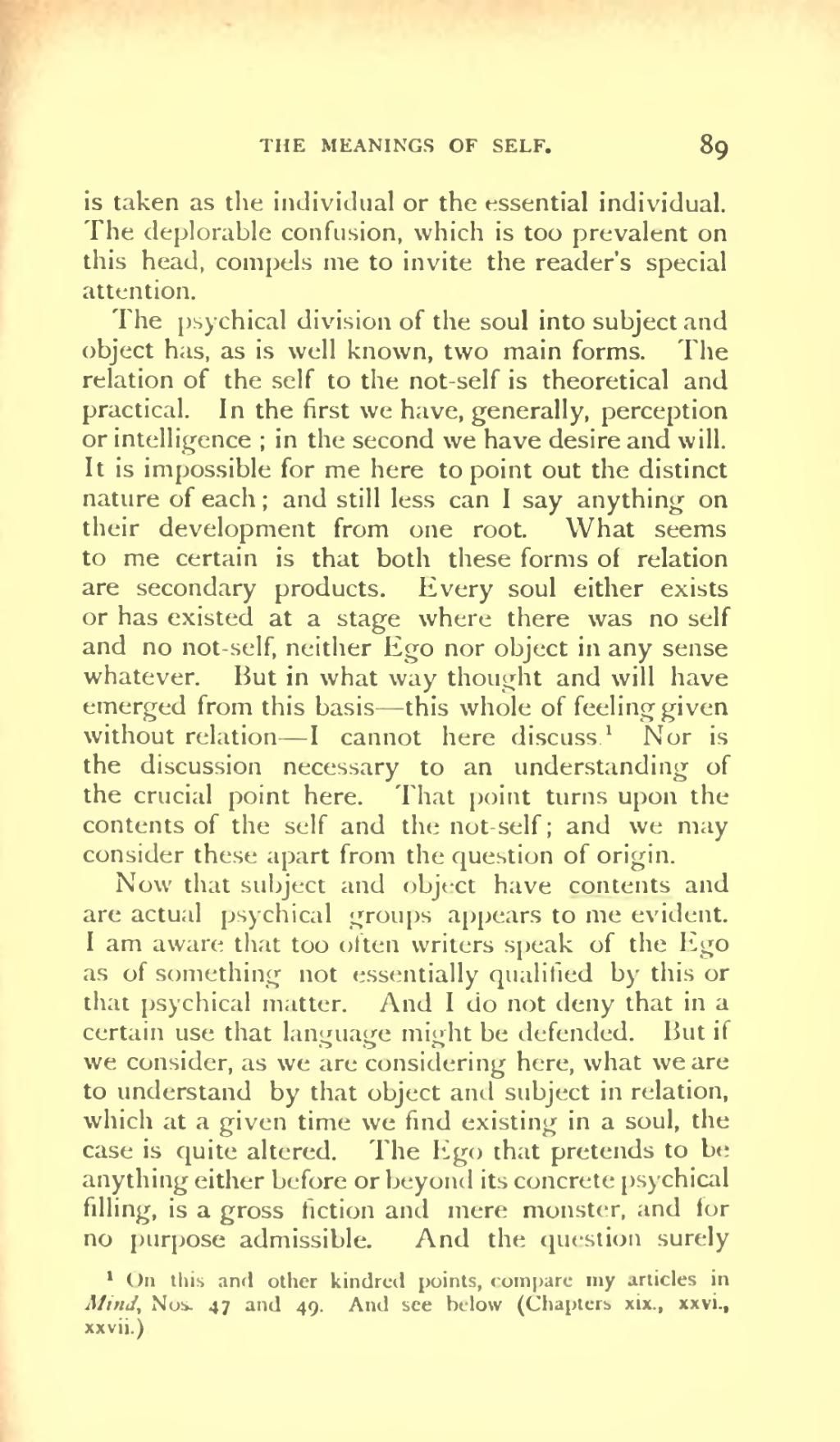is taken as the individual or the essential individual. The deplorable confusion, which is too prevalent on this head, compels me to invite the reader’s special attention.
The psychical division of the soul into subject and object has, as is well known, two main forms. The relation of the self to the not-self is theoretical and practical. In the first we have, generally, perception or intelligence; in the second we have desire and will. It is impossible for me here to point out the distinct nature of each; and still less can I say anything on their development from one root. What seems to me certain is that both these forms of relation are secondary products. Every soul either exists or has existed at a stage where there was no self and no not-self, neither Ego nor object in any sense whatever. But in what way thought and will have emerged from this basis—this whole of feeling given without relation—I cannot here discuss.[1] Nor is the discussion necessary to an understanding of the crucial point here. That point turns upon the contents of the self and the not-self; and we may consider these apart from the question of origin.
Now that subject and object have contents and are actual psychical groups appears to me evident. I am aware that too often writers speak of the Ego as of something not essentially qualified by this or that psychical matter. And I do not deny that in a certain use that language might be defended. But if we consider, as we are considering here, what we are to understand by that object and subject in relation, which at a given time we find existing in a soul, the case is quite altered. The Ego that pretends to be anything either before or beyond its concrete psychical filling, is a gross fiction and mere monster, and for no purpose admissible. And the question surely
